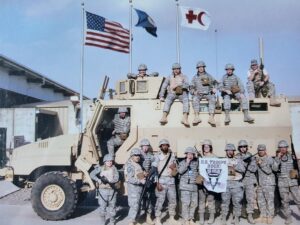
The last thing I thought I would be when I retired from the U.S. Air Force was lonely. PTSD – check, moral injury – yep, I left with those, but loneliness and isolation never crossed my mind. No one told me that living in the civilian world would be a challenge after military life. My lingo was strange, my ethics were odd, and sometimes it was easier for people to push my ideas and efforts aside rather than try to understand and benefit from them. After a while, I felt lonely and doubted my worth…why?!
Adjusting to an unstructured lifestyle and a civilian job market can be overwhelming for veterans who have spent years in a structured environment with a clear chain of command. The lack of routine and structure can cause confusion, anxiety, and depression. Furthermore, the abruptness of their departure from the military without the support of their fellow service members may create feelings of isolation, loneliness, and disconnection. Additionally, many veterans leave the service with mental health issues such as post-traumatic stress disorder (PTSD), depression, sleep disorders, and substance abuse. These immensely affect their lives, making it difficult to maintain relationships, find employment, or even take care of themselves and their families.
Some programs and organizations provide support services for veterans; however, these are large programs and don’t stretch into the cracks and crevices of society, and many don’t address the
transition. Some employers are beginning to recognize the unique skills and experiences that veterans bring to the workplace but don’t understand what veterans go through during their reintegration into civilian life. There is a gap in employers’ understanding of this part of their workforce. Employing military veterans needs to be treated like a generational leadership approach; imagine “How to lead a Vet” training—a noble concept but rarely valued.
Places like the Veteran’s Business Outreach Centers guide veterans through the process of opening a business, help them start it, follow up with you, and are a resource for you long after your business has begun. Where is that system for transition and mental health? Can’t the transition from military to civilian life follow this same process? If so, it’s pennies on the dollar.
Mental health is just as important as physical health, and there is no shame in asking for help. Veterans just need a place to feel useful, included, and valued. This is where I come in. I work one-on-one with current military personnel getting ready to transition to civilian life or veterans in transition to provide them with the tools and support they need to move into this new phase in their lives successfully. Nobody should have to go it alone as I did. Reach out to me today; I’m here for you!

